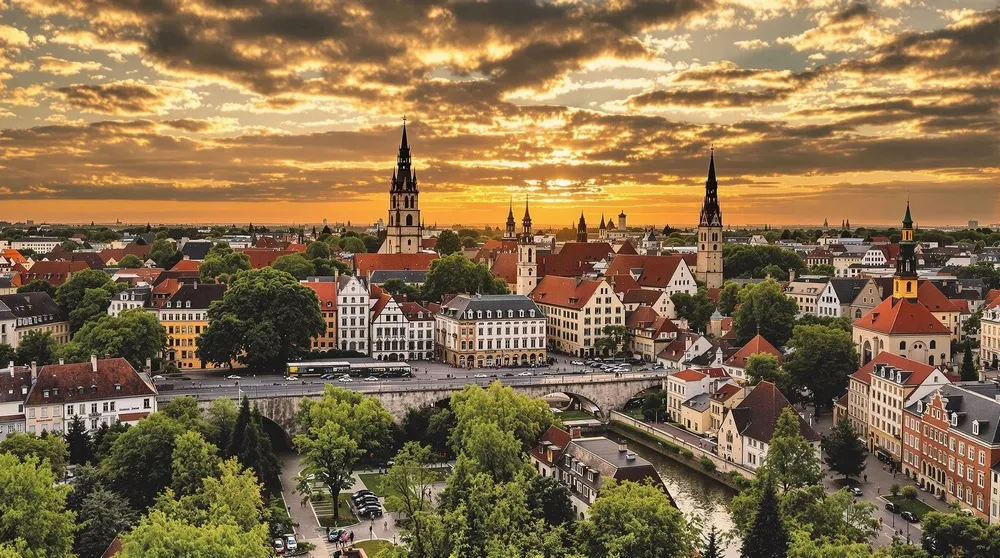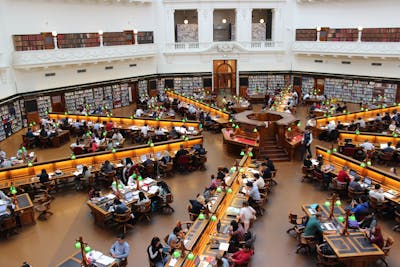Beyond Borders: How UMN Journalism Students Are Landing Dream Internships Across Europe
From Minneapolis to Munich: A guide to international opportunities and the tools that make them possible

When senior broadcast major Taylor Nguyen stepped into the BBC World Service newsroom last summer, she already knew how to chase breaking stories on a deadline. What surprised her was how quickly she was asked to pitch them. "By day three I was producing a two-minute radio spot on EU climate policy," she recalls. Taylor is one of more than 5,500 University of Minnesota (UMN) students who studied or interned abroad in 2023 alone, a total that has rebounded sharply after the pandemic lull[1]. Nearly one-third of Hubbard School journalism majors now complete at least one international internship before graduating. What's driving the rush across the Atlantic?
- Europe's dense media landscape offers English-language newsrooms in every major capital.
- Post-COVID hybrid models let students start remotely and finish on site.
- New AI-assisted application tools slash the time needed to tailor cover letters in multiple languages.
The European Opportunity Landscape
1. Growth in University Partnerships
UMN maintains 55 active exchange agreements across 17 countries, many with journalism or communication tracks. Popular semester programs include London, Barcelona and Florence, each pairing coursework with newsroom placements.
2. Remote-First Internships
Since 2021, outlets such as Deutsche Welle (DW) have accepted remote research assistants who later transition to Berlin or Bonn desks.
3. Language Requirements
Most British, Irish and pan-European outlets work in English. For placements in Germany, France or Spain, conversational proficiency (B1–B2) remains the norm, though bilingual programs like Minnesota Goes to Berlin waive German fluency for classroom-media fellowships.
4. Top Destinations for UMN Journalism Students
| Country | Flagship Hosts | Distinguishing Feature | 2023 UMN Participants |
|---|---|---|---|
| United Kingdom | BBC, The Guardian, Financial Times | Large English-language newsroom clusters | 8,654 Minn. students since 2015 |
| Germany | Deutsche Welle, Axel Springer, Burda Media | Paid internships & DW traineeship stipends | 2,888 |
| Netherlands | Politico Europe, NOS, De Correspondent | Data-driven & podcast heavy | 665 |
| France | France 24, AFP, English-language bureaus | Multilingual 24-hour news channels | 3,561 |
Student Success Stories
- Sarah Chen – BBC World Service, London
From editing TikTok explainers to voicing Mandarin sound bites, Sarah rotated through radio, TV and social.
- Marcus Rodriguez – Berlin startup MiniMedia
Wrote city-culture newsletters that grew subscribers 28% in eight weeks, landing a freelance contract post-internship.
- Emma Thompson – Freelancing Across Europe
Used Erasmus+ networking events to pitch feature stories to Politico Europe and Deutsche Welle, funding six months of travel.
Key takeaway: Alumni cite initiative and multiplatform skills—video, data viz, social copy—as the currency that European editors value most.

Preparing for International Applications
Application Requirements by Country
| Country | GPA Range | Language Proof | Typical Docs |
|---|---|---|---|
| UK | 3.0+ | None | CV, clippings |
| Germany | 2.8+ | Goethe Bor equivalent | CV, transcript, cover letter |
| France | 3.0+ | DELF B2 (select roles) | CV, motivation letter |
Crafting Compelling Application Materials
- 1 EU-Style CV: One-page, reverse-chronological, no headshot unless requested.
- 2 Cover Letters: Brief, evidence-driven, using formal salutations. Germany-specific tip: "German applications require particularly detailed and structured cover letters. Many successful applicants use specialized AI tools like ki bewerbungsschreiben to generate polished German-language letters that align with local hiring norms."
- 3 Portfolio: Host-country angles—add stories on EU politics, climate or tech to demonstrate relevance.
Timeline & Deadlines
- Start 12–18 months out; BBC, DW and Guardian open portals each autumn.
- Peak seasons: UK & Netherlands—spring; Germany & France—early summer.
- Follow-up: One polite email two weeks after submission; WhatsApp messages are common in continental Europe.
Financial Planning & Logistics
- Funding: UMN Learning Abroad Center awards $750–$2,500 grants; additional fellowships available via UMN International Study Office.
- Paid vs. Unpaid: DW pays €1,896–€2,173 per month; Guardian work-experience schemes provide travel stipends but remain largely unpaid.
- Visas: UK Temporary Worker Government Authorised Exchange for placements over four weeks; German student visa allows up to 120 full working days.
- Insurance: UMN automatically enrolls outbound students in comprehensive international coverage[1].
Making the Most of Your International Experience
- 1 Attend press clubs (Deutscher PresseClub, London Foreign Press Association).
- 2 Seek mentorship—DW's trainee cohort pairs each intern with a senior editor for monthly feedback.
- 3 Build a multilingual LinkedIn profile; hashtag strategically (#EUClimate, #BerlinTech).
- 4 Adapt to workspace norms—punctuality in Germany; flat hierarchies in Dutch newsrooms.
Career Impact & Return on Investment
UMN research shows study-abroad participants graduate at higher rates and report faster job placement than peers. Alumni credit:
- Advanced data-journalism skills learned in Dutch newsrooms.
- Lifelong networks—42% stay connected with European mentors two years post-internship.
- Pathways to relocation—DW's 18-month traineeship converts many interns to full-time roles each cycle.
Resources & Next Steps
- UMN – Learning Abroad Center advising, Hubbard School career coaching, alumni contact database, fall info sessions.
- External – BBC Early Careers portal; DW internship board; GoAbroad journalism listings; language refreshers via UMN TandemPlus.
Conclusion
Europe's media capitals are no longer distant dreams for UMN journalism students; they're entry-level classrooms where deadlines happen in multiple languages and cross-border collaboration is the norm. If you're ready to file your first story from a London bureau or fact-check a documentary in Bonn, start polishing that EU-ready CV now, tap AI tools for German-perfect cover letters, and book a seat at the next UMN study-abroad fair. Your dateline could read "Paris" sooner than you think.











